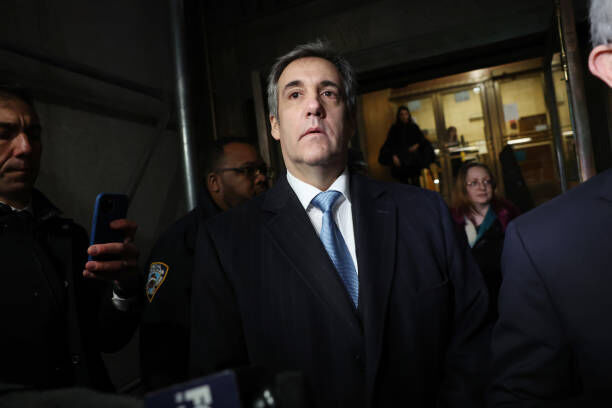Michael Cohen Testifies in Trump Hush Money Trial, Reveals Direct Involvement in Payment to Stormy Daniels
On Monday, Michael Cohen, Donald Trump's former...
On Monday, Michael Cohen, Donald Trump's former lawyer and fixer, took the stand in a Manhattan criminal court to testify against Trump in a high-profile trial. Cohen, once a staunch ally of Trump, is now a key witness for the prosecution, which accuses the former president of falsifying business records to conceal a hush money payment to adult film actress Stormy Daniels. This trial, now in its fifth week, centers on whether Trump orchestrated a payment to silence Daniels about an alleged affair, thus protecting his 2016 presidential campaign.
Cohen's testimony painted a vivid picture of Trump's direct involvement in the scheme. According to Cohen, Trump personally approved the $130,000 payment to Daniels, instructing Cohen to "just do it" to prevent the story from affecting his campaign. Cohen recounted how, in the final weeks leading up to the 2016 election, he learned that Daniels was attempting to sell her story to the press. At the same time, the Trump campaign was already grappling with the fallout from the infamous "Access Hollywood" tape, in which Trump was heard making lewd comments about women.
During his testimony, Cohen explained that Trump was adamant about keeping Daniels' story out of the public eye, fearing the impact it would have on his reputation among female voters. Cohen described a conversation where Trump expressed his concern, stating, "This is a disaster, a total disaster. Women are going to hate me." Cohen detailed how he managed the payment, creating a shell company to facilitate the transaction and ensuring it was handled discreetly.
Cohen also addressed the subsequent reimbursement process. After Trump won the election, Cohen was reimbursed through a series of payments that were falsely recorded as legal expenses by the Trump Organization. This misrepresentation is at the heart of the charges against Trump, who faces 34 counts of falsifying business records. Prosecutors argue that these falsifications were intended to cover up violations of election law, transforming what could have been misdemeanors into felonies.
The defense, however, has sought to discredit Cohen, emphasizing his criminal past and history of lying under oath. Cohen has admitted to lying to Congress about a separate Trump Organization project in Moscow and has pleaded guilty to tax evasion and campaign finance violations. Trump's lawyers argue that Cohen acted independently in paying Daniels and that the payments were not connected to the campaign but were meant to spare Trump's family from embarrassment.
Despite these attacks on his credibility, Cohen's testimony is critical for the prosecution. He provided jurors with detailed accounts of his interactions with Trump and the steps taken to execute the hush money payment. He also testified about Trump's broader strategy of using payments to suppress other potentially damaging stories, involving people like National Enquirer publisher David Pecker.
Cohen's testimony included references to Trump's directive to delay the payment to Daniels until after the election, reasoning that the story would be less significant by then. This assertion undercuts the defense's claim that the payment was for personal reasons rather than to influence the election.
The trial has significant implications not only for Trump’s legal future but also for his ongoing political ambitions as he seeks to return to the White House. While Cohen’s checkered past poses challenges for the prosecution, his inside knowledge and detailed accounts of Trump's actions provide a compelling narrative that jurors will have to consider carefully. The trial continues with Cohen's cross-examination and testimonies from other witnesses who may either corroborate or challenge his accounts.




